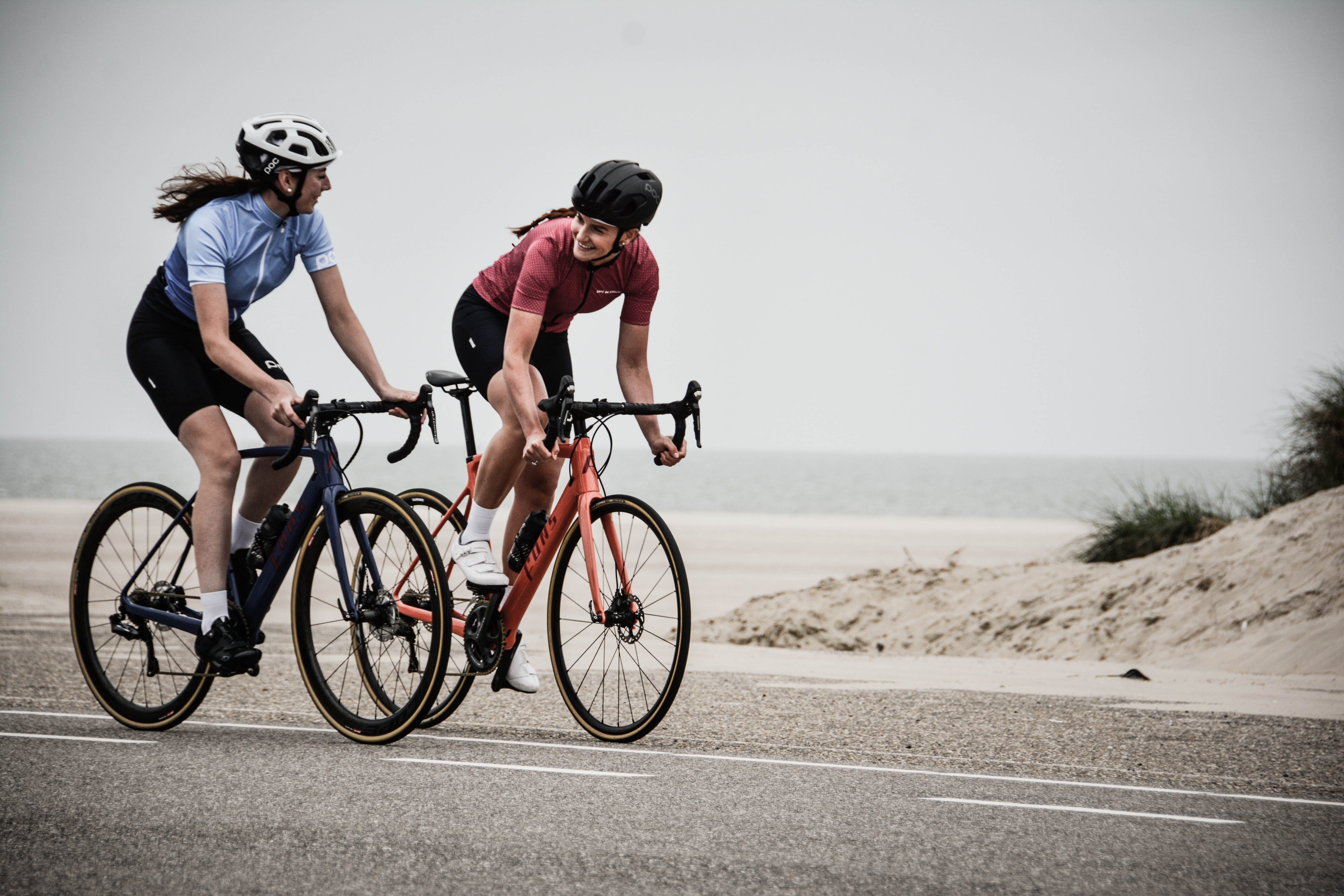
Whether cycling in sprints on the track, long distance cycling on the road or mountain bike riding performance will be improved with a sports nutrition plan.
Fuelling for training and competition and recovering for the next ride are crucial. Planning is key with different requirements for different cycling types.
Sprint cycling diet
- A diet to keep lean and strong for explosive efforts in sprint cycling. Balancing carbohydrate needs to fuel without over doing it. You may need to ‘periodise’ carbohydrate intake over the week with longer harder training sessions eating more carbs to ensure enough in muscle stores and on lighter days with less aerobic activity less carbohydrate. An Accredited sports dietitian can work with athletes to calculate more closely carbohydrate needs.
- Protein spread out over the day is important to maintain the muscle mass needed for power. If trying to gain muscle extra protein may be needed. Including some protein rich foods such as eggs, lean meat, dairy, fish and legumes at each meal will help meet protein needs.
- Hydration needs will change with more fluid needed in summer time, particularly if indoors in a hot velodrome! Don’t over drink as this can make you heavy, feel nauseous and need to go to the toilet all the time. Think about thirst, weather conditions, your urine volume and how you feel. A drink bottle is always needed, with water generally the drink of choice. Serious athletes though may need energy and electrolyte containing sports drinks.
- Have nourishing snacks ready to go and meals pre-planned for times when you are tired. Recovery needs a range of vitamins and minerals along with the carbohydrate, protein and healthy fats for repair. A quick sugar fix to replace energy is not the best recovery. Think fresh fruit, yoghurt, nuts, sandwiches, soup or your next main meal.
Longer cycling events diet
The longer cycling events whether on the track, road or cross country need more carbohydrate and fluid with careful planning to reach the finish line (particularly for first place!). How much food and fluid will you need before and for long events how will you eat and drink on the bike while cycling at high speed? These take practice to see what works best for you.
- Training requires carbohydrate with more needed to have full muscle glycogen stores for long, intense training sessions. Eating slowly released, nutrient dense carbohydrate foods such as wholegrain bread, brown rice, fruit, potato, corn, sweet potato or oats make good pre-training or event foods.
- Before a long ride or event you may like to top up with an easier to digest carbohydrate food or drink such as yoghurt, smoothie, dried fruit, plain sandwich. This will help reduce the chance of feeling upset in the stomach.
- As for sprint track cycling spreading protein out over the day is best. Sprint cyclists may need more total protein for extra muscle mass but other cyclists will have periods of muscle growth too. This will be quite individual and talking to an Accredited Sports Dietitian can be best for individual nutrition advice. Around a fist size, or 25 grams of protein per snack or meal can be a good guide.
- On longer rides (more than 90 minutes/120 minutes) to keep hydrated you are more likely to need a fluid that provides water, electrolytes and carbohydrate for energy and fluid replenishment. It is generally easier to drink the energy than to eat on the bike, hence where carbohydrate drinks come in, bars and gels. Practice even with these as they can give stomach upset being a concentrated amount of sugar at once. Carry some food too on a long ride that is high in carbohydrate and easy to chew, moist food works best. How about a banana, fruit bar, peanut butter or Vegemite sandwich cut into quarters, crust removed to make eating easy. This works well on long training rides.
- When finished remember to recover with protein, carbohydrate and fluid. A smoothie might go down well here or eggs with avocado on toast and a latte. I have seen a cyclist or two enjoying a visit to a café for a feed and a coffee after a morning ride (even if it is take away).
Remember:
- Practice what you will eat and drink on a ride to know what works for you - sufficient energy, gastrointestinal comfort and ability to eat and drink whilst riding
- To keep hydrated you need fluid that contains electrolytes for at least some of a long ride (120 minutes+)
- Carbohydrate is important for replacing energy and can be included in both food and fluids
- Recover post ride with a snack or meal containing fluid, carbohydrate and protein. Remember the veggies their vitamins, minerals and antioxidants are essential for good health and repair.
